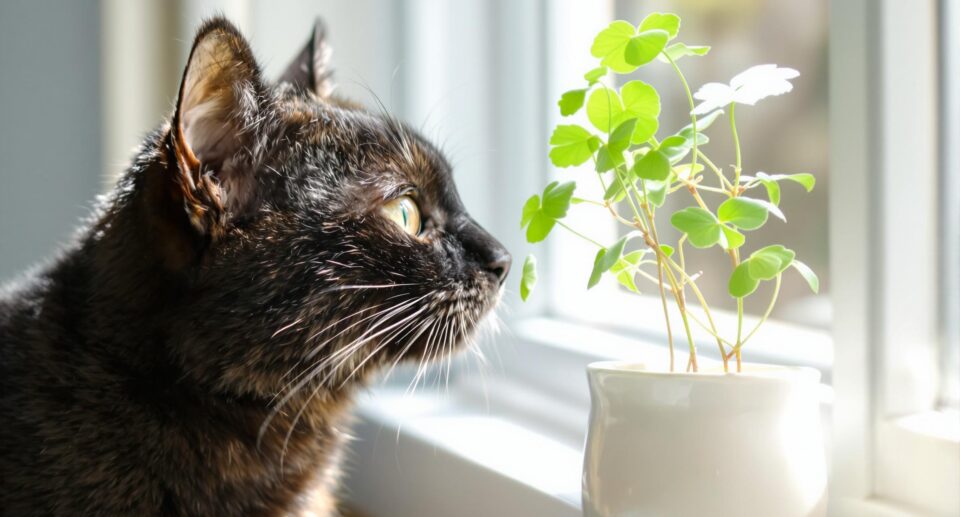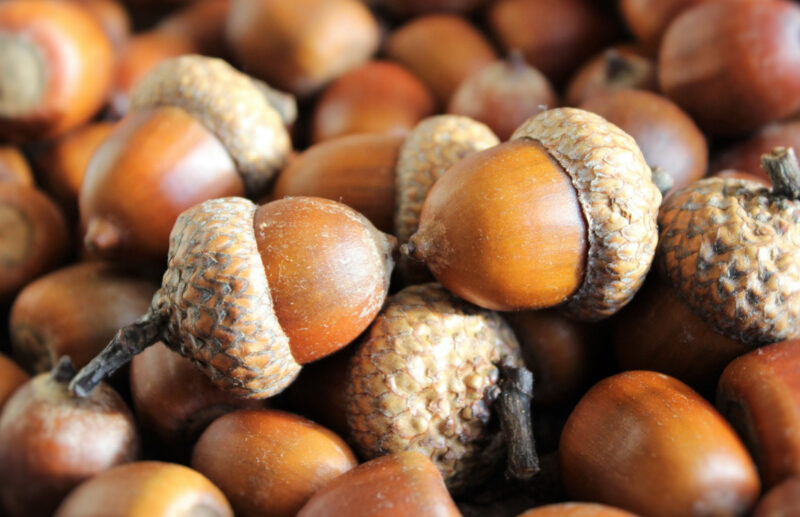Shamrock Plant Toxicity In Cats

Shamrock plants are typically sold close to St. Patrick’s Day as a decoration or gift. Said to bring good luck, these green or purple three-leaved plants aren’t such a good luck charm for curious pets.
If consumed, a shamrock plant (Oxalis regnellii), also known as wood sorrel, can poison your cat, dog, or horse. Not to be confused with clover, the harmless weed that sprawls across lawns, shamrock plants are typically grown indoors or in gardens. While the bitter leaves are enough to deter most animals, some pets may still try to eat them.
Like all poisonous houseplants, a shamrock plant should be kept out of reach of pets or replaced with a pet-friendly alternative. The plant should be removed if present where your horse grazes.
What Makes Shamrock Plants Toxic To Cats, Dogs, and Horses?
The leaves of the shamrock plant contain soluble oxalate salts. Soluble oxalate salts bind with calcium in the body, preventing the pet from absorbing it. This leads to a drop in calcium in the blood.
If eaten over a long period of time, the soluble oxalate salts in shamrock plants bind with calcium to form kidney stones. When eaten in large amounts in a short period of time, shamrock plants can cause acute kidney failure.
What Should I Do If My Pet Ate My Shamrock Plant?
Shamrock poisoning is uncommon, and a pet with healthy kidneys can typically pass soluble oxalate salts in small amounts.
However, even in small doses, soluble oxalate salts can irritate the stomach lining, leading to drooling, vomiting, and diarrhea. Other symptoms to watch out for include tremors, lethargy, changes in urination and water consumption, and bloody urine.
If your pet has eaten shamrock plant, contact your veterinarian right away, even if they have only consumed a small amount and have not yet shown any symptoms. The amount that it would take to become dangerous varies based on your pet’s size and underlying conditions.
If you can’t reach your vet, call the Pet Poison Helpline at 800-213-6680 or ASPCA National Animal Poison Control Center at 1-800-548-2423. A veterinary professional can help you monitor for symptoms and help determine if your pet needs emergency care.





